A chat with the cyber friar known as the “Vatican geek”
Exclusive interview with Eric Salobir, the French Dominican priest who is one of the Catholic Church’s top experts in media and digital technology (Part 1 of 2)
Read MoreSelect Page
Exclusive interview with Eric Salobir, the French Dominican priest who is one of the Catholic Church’s top experts in media and digital technology (Part 1 of 2)
Read MorePosted by bcadmin | Jun 30, 2021 | Catholic Church, Catholic News Service, Church in Europe, lay movements, News, Vatican |
With the approval of Pope Francis, the Vatican has ordered the dissolution of an Italy-based lay movement.
Read MorePosted by bcadmin | Jun 30, 2021 | Middle East - Africa, News |
Santa Cruz Chapel on Murdjajou mount in Oran, Algeria. / Ali Mehaoudi/Shutterstock
Denver Newsroom, Jun 30, 2021 / 09:00 am (CNA).
The closure of several Christian churches in Algeria, as well as court convictions of Christians for undermining M…
“We have to help the Church in the United States to be a listening Church”
Read MoreThe ‘Voice of the Unborn’ bell in Kolbuszowa, Poland. / Justyna Grzyb, Fundacja Życiu Tak.
Warsaw, Poland, Jun 30, 2021 / 08:00 am (CNA).
A bell blessed by Pope Francis is touring Poland to highlight the 42 million lives lost to abortion worldwi…
Posted by bcadmin | Jun 30, 2021 | Catholic Church, Catholic News Service, General Audience, News, Pope Francis, second, Vatican |
Even the lowliest of sinners can become the greatest of apostles by answering God’s call and allowing his grace to work in their heart and mind, Pope Francis said.
Read MoreCardinal Leonardo Sandri, prefect of the Congregation for the Eastern Churches, in St. Peter’s Square, Oct. 10, 2019. / Daniel Ibáñez/CNA.
Vatican City, Jun 30, 2021 / 07:00 am (CNA).
Cardinal Leonardo Sandri has called for a reawakening of cons…
Salesians of Don Bosco provide pastoral care for children in difficult situations, offering services from psychological support to vocational training and family reintegration
Read MorePosted by bcadmin | Jun 30, 2021 | Associated Press, Catholic Church, Church bombings, Church in Africa, Democratic Republic of the Congo, Islamic State, News, Terrorism |
An Islamic State group in Africa claimed responsibility Tuesday for two explosions in eastern Congo, including its first suicide bombing, deepening fears that extremists have now laid roots in this corner of the continent long plagued by rebels.
Read MoreAt the annual pallium-blessing Mass, the pope warns recently appointed archbishops to avoid “hypocritical outward show” and “dubious associations with power”
Read MorePosted by bcadmin | Jun 30, 2021 | Archdiocese of Miami, Catholic Church, Catholic News Service, Church in the US, Disaster, Florida, Miami, News |
After girding themselves with eucharistic adoration, rosary, songs and reflections, the teens, young adults and parish community of St. Joseph stepped out into the night air to solemnly walk to Surfside’s new ground zero.
Read MorePosted by bcadmin | Jun 30, 2021 | Associated Press, Catholic Church, Catholic Schools, Church in the US, COVID-19 pandemic, National Catholic Educational Association, NCEA, News |
The organization overseeing Catholic schools in the United States gets a new chief executive this week as it seeks to rebound from its biggest one-year enrollment drop since the 1970s.
Read MorePope Francis has called for a significant liturgical revolution in altering just a couple of lines in canon law
Read More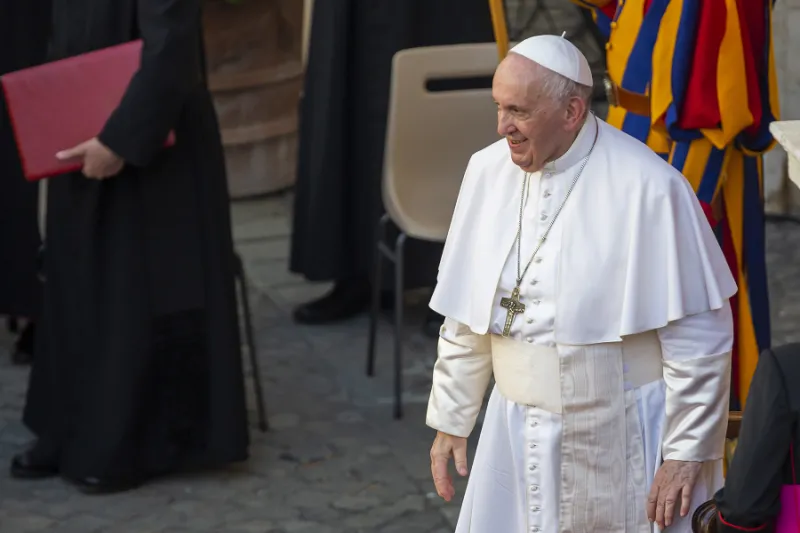 Pope Francis smiles during the general audience in the Vatican’s San Damaso Courtyard on June 30, 2021. / Credit: Pablo Esparza/CNA.
Pope Francis smiles during the general audience in the Vatican’s San Damaso Courtyard on June 30, 2021. / Credit: Pablo Esparza/CNA.
Vatican City, Jun 30, 2021 / 05:05 am (CNA).
Pope Francis said on Wednesday that the dramatic conversion of St. Paul should remind us that God has a plan for our lives.
Speaking at the general audience June 30, the pope noted that Paul experienced a “radical transformation” from a persecutor to an Apostle.
“How often, in the face of the Lord’s great works, does the question arise: how is it possible that God uses a sinner, a frail and weak person, to do His will?” the pope asked.
“And yet, none of this happens by chance, because everything has been prepared in God’s plan. He weaves our history, the history of each of us: He weaves our history and, if we correspond with trust to His plan of salvation, we realize it.”
The pope’s livestreamed address, dedicated to “Paul the true Apostle,” was the second in a new cycle of catechesis on St. Paul’s Epistle to the Galatians.
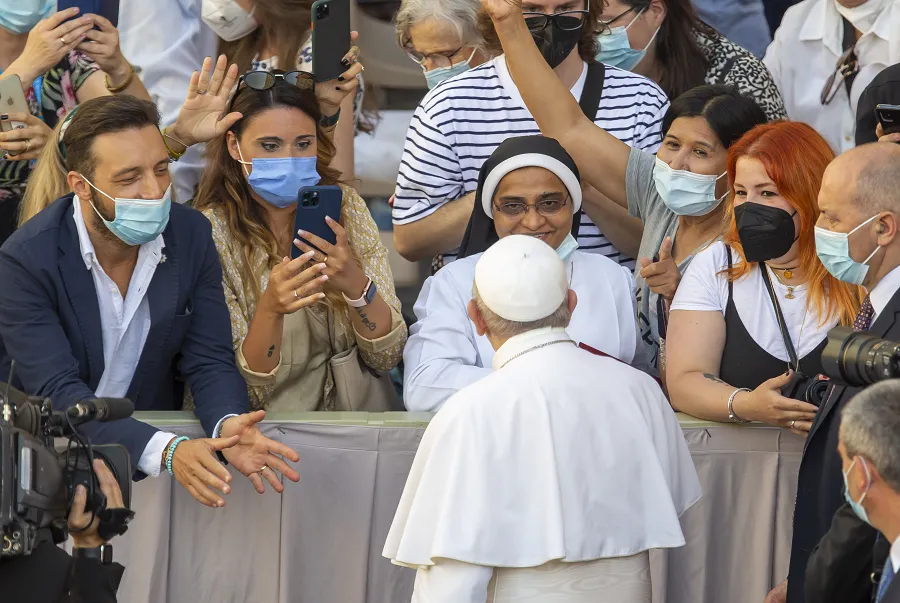
He observed that Paul began the letter by reminding the Christians in Galatia, present-day Turkey, of his deep love for them.
But Paul also recognized that the community was divided. He responded, the pope said, by underlining the novelty of the Gospel.
“We immediately discover that Paul has a profound knowledge of the mystery of Christ. From the beginning of his Letter he does not follow the low arguments used by his detractors,” the pope said.
“The Apostle ‘flies high’ and shows us, too, how to behave when conflicts arise within the community. Only towards the end of the Letter, in fact, is it made explicit that at the heart of the diatribe is the question of circumcision, hence of the main Jewish tradition.”
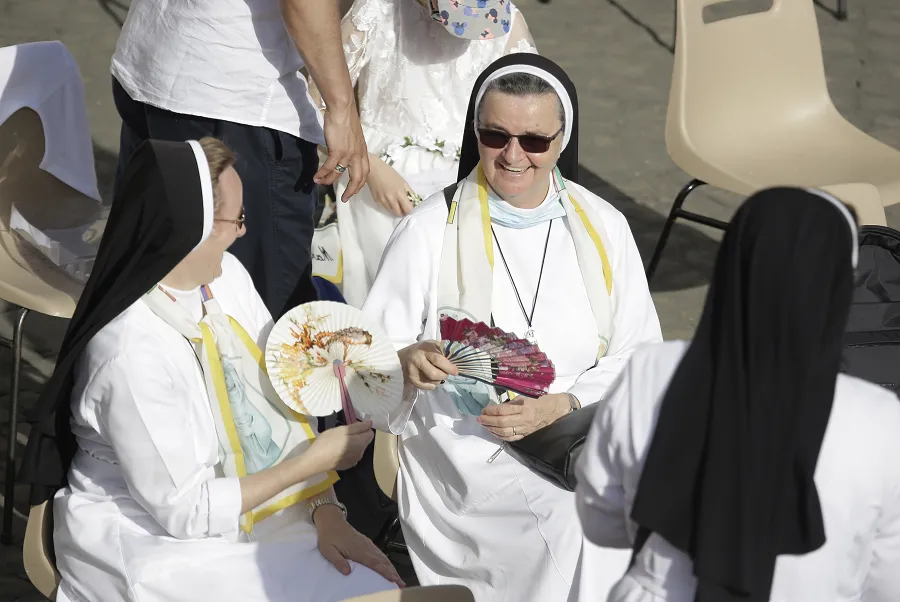
The pope praised Paul for identifying the issue that lay beneath the dispute, rather than seeking a quick fix.
“Paul chooses to go deeper, because what is at stake is the truth of the Gospel and the freedom of Christians, which is an integral part of it,” he said.
“He does not stop at the surface of the problems, as we are often tempted to do in order to find an immediate solution that deludes us into thinking that we can all agree with a compromise.”
“This is not how the Gospel works, and the Apostle chose to take the more challenging route.”
Paul reminded the Galatians that he was a true Apostle, the pope said, by telling the story of how he was called by God on the road to Damascus.
“On the one hand, he insists in underlining that he had fiercely persecuted the Church and that he had been a ‘blasphemer, a persecutor, and a man of violence’ (1 Timothy 1: 13); on the other, he highlights God’s mercy towards him, which led him to experience a radical transformation, well known to all,” he observed.
Commenting on Paul’s journey from “a blameless observer of the Mosaic Law” to “a herald among the pagans,” the pope said: “We must never forget the time and the way in which God entered our lives: keep fixed in your heart and mind that encounter with grace, when God changed our existence.”
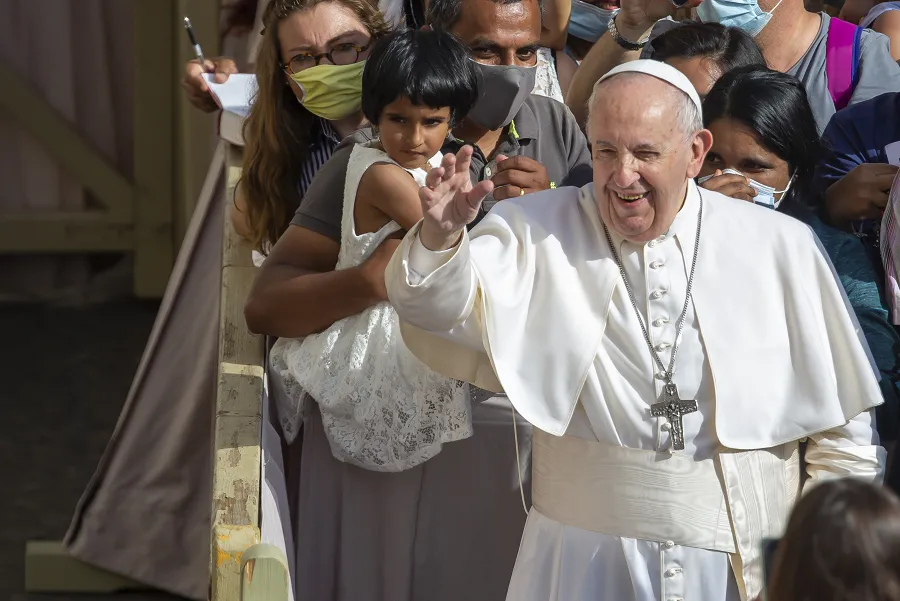
Concluding his catechesis, the pope said that when we are called by God, we also receive a mission that He wishes us to undertake.
“That is why we are asked to prepare ourselves seriously, knowing that it is God Himself who sends us, God himself who supports us with His grace,” he said.
“Let us allow ourselves to be led by this awareness: the primacy of grace transforms existence and makes it worthy of being placed at the service of the Gospel.”
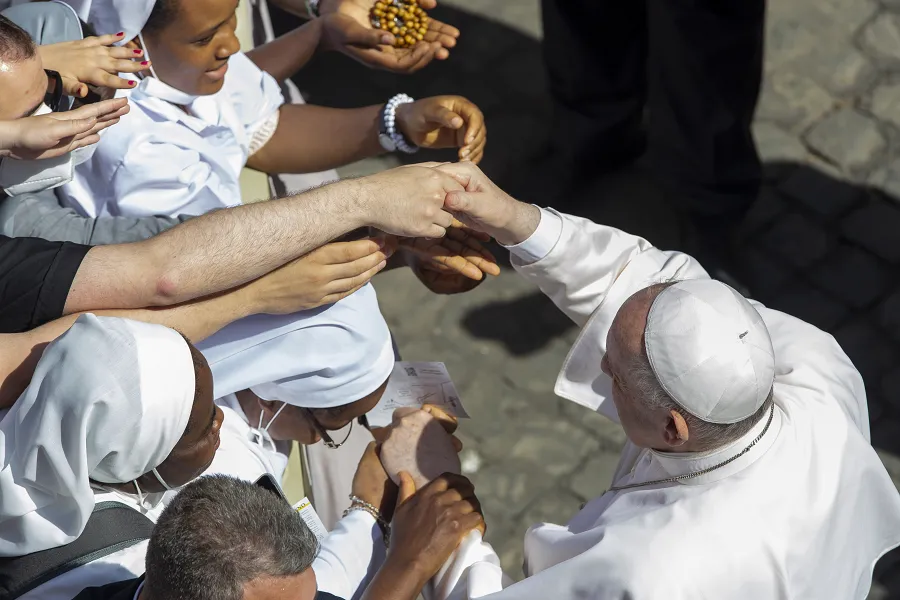
A precis of the pope’s catechesis was then read out in seven languages. After each summary, he greeted members of each language group.
One of the greetings was to pilgrims from Slovakia, a country that the Vatican is considering for a possible papal visit in September.
He said: “I greet with affection the Slovakian faithful, especially the participants in the Pilgrimage of Thanksgiving of the Eparchy of Košice, which celebrates the 350th anniversary of the miraculous weeping of the icon of Our Lady of Klokočov, led by their ordinary Archbishop Cyril Vasiľ.”
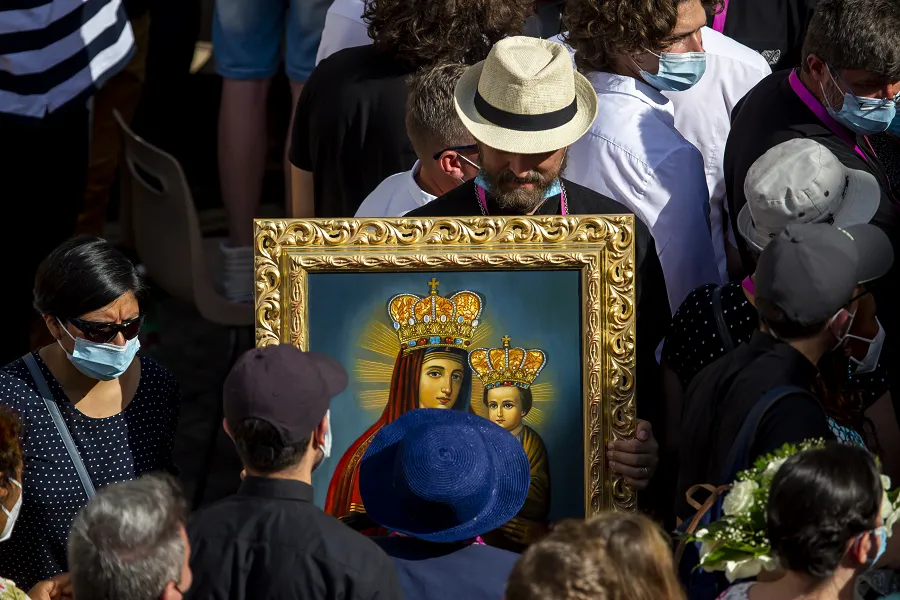
“Brothers and sisters, may this celebration of the Mother of God renew in your people the faith and the lively sense of her intercession on your journey.”
Addressing Italian speakers, the pope thanked his senior driver Renzo Cestiè, who he noted was retiring that day.
“He started working when he was 14, he came by bicycle,” the pope said. “Today he is the pope’s driver: he did all of this. An applause for Renzo and his faithfulness.”
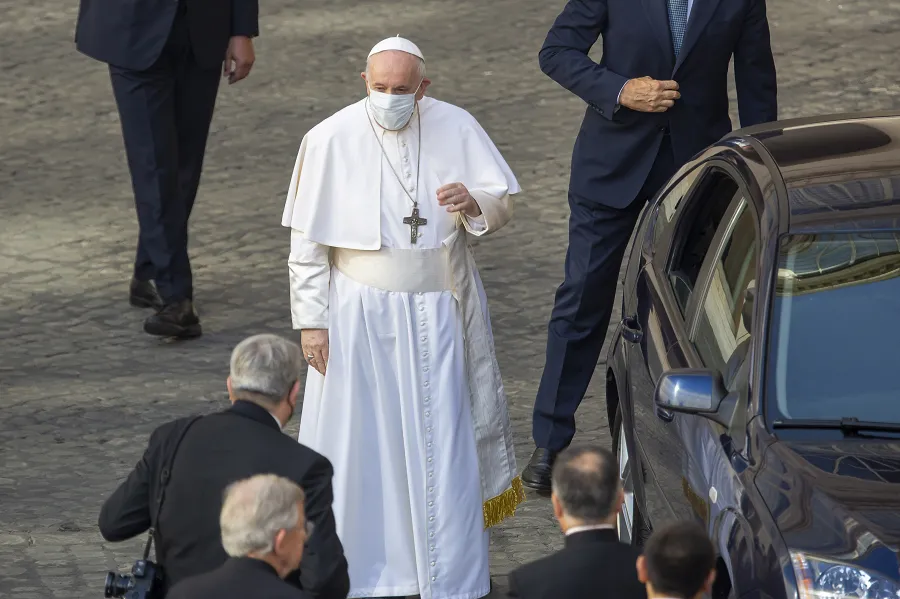
“He is one of those people who carries the Church forward with his work, with his benevolence and with his prayer. I thank him and also take the opportunity to thank the many lay people who work with us in the Vatican,” he said.
The general audience ended with the recitation of the Our Father and the Apostolic Blessing.
Posted by bcadmin | Jun 30, 2021 | Faith, Fr. David Endres, Fr. David J. Endres, From the Magazine, How do we know Jesus existed?, Jesus, News, Outside Perspectives |
BY FR. DAVID J. ENDRES How do we know Jesus ever existed? From time to time an article or a book will make its way into the market arguing that Jesus’ existence was a coordinated hoax or a collective hallucination. Since modern society is so often fasc…
Read MoreYou can hardly tune into a Catholic podcast or read a Catholic publication these days without someone complaining about the lack of manliness. But is a lack of manliness the problem, or a lack of Christianity in men? We asked the world’s most man…
Read MoreThe crisis in the Holy Land is ‘our issue,’ too
Read MoreNearly 800,000 people have fled their homes in the wake of a brutal Islamist advance in Mozambique (map).
Read More
Recent Comments